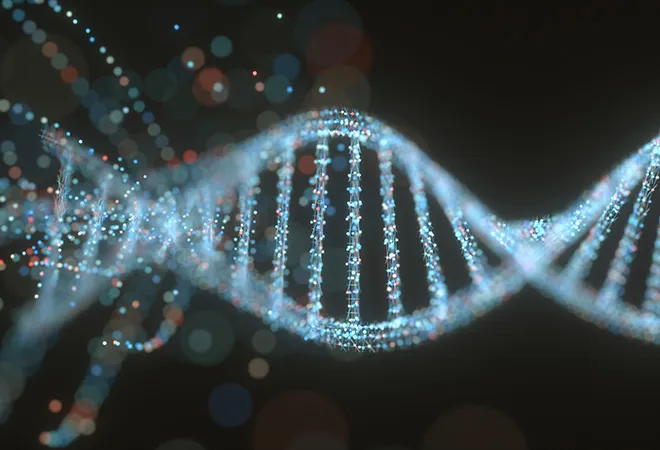
The bioengineering world as well as the biomedical sciences are evolving very rapidly on new frontiers such as artificial intelligence, machine learning, deep learning and 3D printing beyond the established frontiers related to genetic engineering and genomics. Now techniques are being refined and advanced systems are being built to assist doctors in making accurate diagnosis and, in the instance of genetic engineering, the development of genomic editing techniques.
The genomic approach has seen some success in the field of oncology by modifying the protocols of effective immunotherapies. Compared to previous cytotoxic chemotherapies, effective immunotherapies have showed significant and promising results in patients. This revolution is creating a veritable tsunami of computer data on patients, their illnesses, the diagnostic tests carried out and genetic data.
In light of the growing research on predictive medicine, hyper-personalised medical services and medical devices which can better support the diagnosis and therapy through machine learning — it’s necessary to incorporate insights on bioethical principles into medical design and clinical research.
In light of the growing research on predictive medicine, hyper-personalised medical services and medical devices which can better support the diagnosis and therapy through machine learning — it’s necessary to incorporate insights on bioethical principles into medical design and clinical research. Furthermore, the tsunami that we all know as Big Data requires great reflection on the techniques used to analyse data, to manage it, to govern it and to interpret it in the most correct way.
Each great technological evolution should be accompanied by an ethical reasoning that focuses, primarily, on the patient's welfare. Health policies should follow not just on a national level but also on a European level in the interests of balanced and democratic medicine. The role of bioengineers has become necessary in order to coordinate and centralise procedures in a clinical investigation and adopt new technologies. Due to the complexity of problems linked to the evolution of medicine as well as the pressing challenges of an ageing population, a multidimensional approach is needed which includes clinical engineering and humane bioethical elements.
Actors and the controlled mapping of processes become crucial to ensure that the essential principles of bioethics namely — respect for autonomy, non-maleficence, social benefit and justice — are respected not only for the doctor and patient — but also for all relevant stakeholders and professionals, who have access to, and who are involved in managing the sensitive medical data.
Today, the areas of Information and Communication Technology and Clinical Engineering are getting closer and closer — often intersecting.
These principles must be viewed and oriented toward two complementary directions. The first direction involves health professionals — those who are responsible for patient care as well as technical operators who are responsible for the choice of biomedical equipment, governance, and data security. The second direction concerns respect for the patient in their decision-making autonomy (i.e. patient-centricity) and defining clinical actions in favour of the patient minimising harm to them and acting in the good conscience.
Today, the areas of Information and Communication Technology and Clinical Engineering are getting closer and closer — often intersecting. Biomedical equipment is also for instance used within a general information security system. This equipment falls under the rules of the new EU GDPR in particular in two articles which are Article 35 (evaluation of the impact on data protection) and Article 5 (Principles relating to processing of personal data).
The new EU-GDPR does not provide specific requirements for hospital security; however it requires strategic re-organisation of monitoring to maintain the efficiency of the information systems. The GDPR also requires having clear internal information assets to manage the platforms of clinical investigations and medical devices. We then need to contemplate the following questions:
A number of parties need to be involved in building policy and ethical frameworks. This would not only be those related to the use of the technology itself — but also those who shape the choice of tools, data security measures and platforms that will process them. A good example is The Ethical Framework for a Good AI Society (EF) in which risks, opportunities, basic ethical and bioethical principles and recommendations are considered.
A number of parties need to be involved in building policy and ethical frameworks. This would not only be those related to the use of the technology itself — but also those who shape the choice of tools, data security measures and platforms that will process them.
The governance of all processes is necessary. Not only do we need to consider the four principles of bioethics mentioned above, but also the four relevant aspects of EF:
- Whom
- How
- Where
- When
In order to appropriately address emerging issues that lie at the intersection of medicine and future technologies, it is necessary to raise awareness of emerging issues and potential strategies of action by directly addressing operators — whether they are managers, biomedical engineers, computer engineers, system engineers, doctors and nurses. Dialogue, coordination and continuous training on regulations, responsibility for safe process management and a team-working approach can raise awareness of future decisions, risks and opportunities followed by actions to mitigate negative effects either intentional or unintentional.
The views expressed above belong to the author(s). ORF research and analyses now available on Telegram! Click here to access our curated content — blogs, longforms and interviews.




 PREV
PREV

